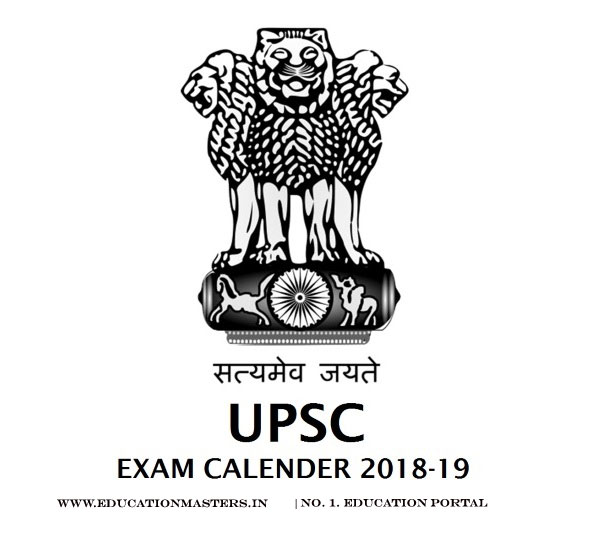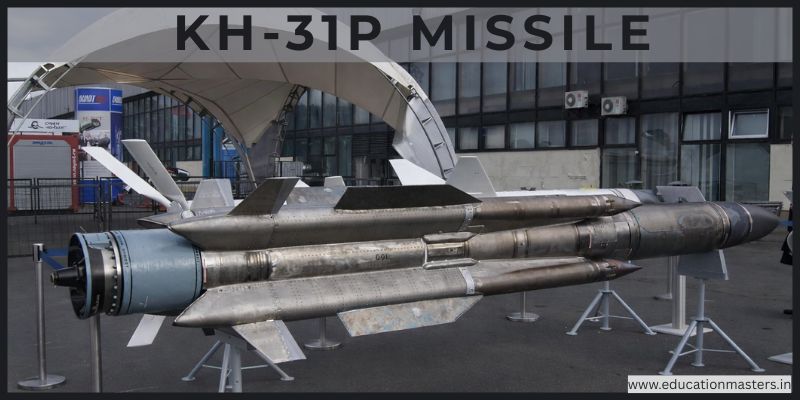UPSC IAS MAINS EXAM SYLLABUS AND PATTERN 2018 -2019
By Nabh Joshi | Career | Aug 10, 2018

Union Public Service Commission has recently released its new date for the examination. Candidates who are planning to give exam, please read the full syllabus below.
But before expecting it to be done by somebody to make it easy for you. It would help you more if you try to read each and every line of the syllabus and try to understand it. That helps you understanding its nature and pattern very well.
Well, you may think that its quite hard….but it can be made easy….
with concentration trying to understand each line daily once.
Make it a habit…you will get the answer by yourself after few days….
Okay now we will try to do it for you…
Summarized simplification :-
Those in brackets are to be specially focused.
Physical(earthquakes,tsunamis etc,distribution of resources), human(population,industrial sectors), economic(crops,irrigation subsidies etc) geography.
Indian (freedom struggle and reorganization) and world (industrial revolution, colonisation,political philosophies) history.
Issues of Constitution ,powers of federal governments, legislatures,ministries,judiciary,govt development schemes ,Indian relations with countries and bilateral groups in polity&IR.
Sustainable economic development, inclusion, planning, budgeting in economy.Ethics.
Issues of women,poverty,population, urbanisation,globalisation, regionalism,secularim ,art and architecture , NGOs,SHGs,e-governance , science and technology,security,disaster management,robotics,environment, nano tech,ipr etc as miscellaneous.
Prelims :
Current affairs
Indian history particularly the national movement.
Geography and polity .
Economy and development…focusing on sustainability and inclusion.
Issues of poverty and demographics in an economic view.
Environmental ecology.
The syllabus of prelims is too generalised to simplify into particular topics specially for geography,polity and environment but I think that its more or less the mains syllabus.
Mains :
Compulsory language papers :
Basic skills to answer passages,short essays and vocabulary and writing in the languages.
Essay : Close to the subject,orderly fashion,concise essays are expected. Effective and exact expression is appreciated.
GS-1 :
Art and culture :
Art forms,architecture and literature from ancient days.
History : Modern Indian history focusing on Significant personalities,events and issues.Stages and contributors of freedom struggle .Post independence reorganization.
World history also includes events from only 18th century focusing on world wars,industrial revolution,issues of colonization and political philosophies with their impact.
Geography :Physical geography of the world focusing on earthquakes,tsunamis etc and distribution of natural resources specially in South Asia and Indian subcontinent.
Human geography includes the factors responsible for all the sectors.
Dynamic topics :
Diversity of India,issues of women,poverty and population,urbanization and globalization.
GS-2 :
Polity :Constitution, its basic structure,features,amendments and its evolution.Federal structure and its challenges.Responsibilities of Union ,states and constitutional bodies ( appointment to constitutional posts) ,functioning of parliament and state legislatures. Seperation of powers between various organs and dispute redressal mechanisms.
Comparision of Indian constititutional scheme with that of others. Executive and judiciary, ministries of govt. and pressure groups.
Representation of people’s act , quai judicial bodies.
Dynamic issues :
Government policies and their issues,welfare schemes by goverments,their implementation and performance.
NGOs SHGs,charities in development.Issues of poverty ,hunger health ,education etc.
E-governance,transparency and àccountability.
Role of civil services in democracy.
IR :
India and its relations with neighbourhood, bilateral groups and meetings,effect of politics of developed countries on Indiaand international institutions.
GS-3 :
Economics : Economy ,issues of planning,mobilization of resources,growth and employment. Inclusive growth and government budgeting and reforms,liberalization and industrial policy.
Economic geography : Cropping patterns,irrigation ,marketing of agricultural produce. Farm subsidies,e-technology in farming,msp,food security,food processing and industries and buffer stocks.
Ports,roads,airports etc.
Science and Technology : New developments and Indians’ achievements. Nanotech,biotech,robotics,ipr,disaster management awareness.
Environment : Conservation,pollution,degradation and its impact assessment.
Security : External challenges specially through communication networks to security and issues of cyber security and various security forces.
Interview : Its objective is to test the personal suitability of the candidate for public service and mental stability. Though this kind of simplification will help you for better understanding of the syllabus, after certain level of understanding or after you get the gist of the syllabus, its necessary to take care of each and every word and its meaning.
Check related link : https://educationmasters.in/ndasyllabus2018/
https://educationmasters.in/how-to-become-sub-inspector-in-uttarakhand-police/
But before expecting it to be done by somebody to make it easy for you. It would help you more if you try to read each and every line of the syllabus and try to understand it. That helps you understanding its nature and pattern very well.
Well, you may think that its quite hard….but it can be made easy….
UPSC Exam syllabus
with concentration trying to understand each line daily once.
Make it a habit…you will get the answer by yourself after few days….
Okay now we will try to do it for you…
Summarized simplification :-
Those in brackets are to be specially focused.
Physical(earthquakes,tsunamis etc,distribution of resources), human(population,industrial sectors), economic(crops,irrigation subsidies etc) geography.
Indian (freedom struggle and reorganization) and world (industrial revolution, colonisation,political philosophies) history.
Issues of Constitution ,powers of federal governments, legislatures,ministries,judiciary,govt development schemes ,Indian relations with countries and bilateral groups in polity&IR.
Sustainable economic development, inclusion, planning, budgeting in economy.Ethics.
Issues of women,poverty,population, urbanisation,globalisation, regionalism,secularim ,art and architecture , NGOs,SHGs,e-governance , science and technology,security,disaster management,robotics,environment, nano tech,ipr etc as miscellaneous.
Detailed simplification :
Prelims :
Current affairs
Indian history particularly the national movement.
Geography and polity .
Economy and development…focusing on sustainability and inclusion.
Issues of poverty and demographics in an economic view.
Environmental ecology.
The syllabus of prelims is too generalised to simplify into particular topics specially for geography,polity and environment but I think that its more or less the mains syllabus.
Mains :
Compulsory language papers :
Basic skills to answer passages,short essays and vocabulary and writing in the languages.
Essay : Close to the subject,orderly fashion,concise essays are expected. Effective and exact expression is appreciated.
GS-1 :
Art and culture :
Art forms,architecture and literature from ancient days.
History : Modern Indian history focusing on Significant personalities,events and issues.Stages and contributors of freedom struggle .Post independence reorganization.
World history also includes events from only 18th century focusing on world wars,industrial revolution,issues of colonization and political philosophies with their impact.
Geography :Physical geography of the world focusing on earthquakes,tsunamis etc and distribution of natural resources specially in South Asia and Indian subcontinent.
Human geography includes the factors responsible for all the sectors.
Dynamic topics :
Diversity of India,issues of women,poverty and population,urbanization and globalization.
GS-2 :
Polity :Constitution, its basic structure,features,amendments and its evolution.Federal structure and its challenges.Responsibilities of Union ,states and constitutional bodies ( appointment to constitutional posts) ,functioning of parliament and state legislatures. Seperation of powers between various organs and dispute redressal mechanisms.
Comparision of Indian constititutional scheme with that of others. Executive and judiciary, ministries of govt. and pressure groups.
Representation of people’s act , quai judicial bodies.
Dynamic issues :
Government policies and their issues,welfare schemes by goverments,their implementation and performance.
NGOs SHGs,charities in development.Issues of poverty ,hunger health ,education etc.
E-governance,transparency and àccountability.
Role of civil services in democracy.
IR :
India and its relations with neighbourhood, bilateral groups and meetings,effect of politics of developed countries on Indiaand international institutions.
GS-3 :
Economics : Economy ,issues of planning,mobilization of resources,growth and employment. Inclusive growth and government budgeting and reforms,liberalization and industrial policy.
Economic geography : Cropping patterns,irrigation ,marketing of agricultural produce. Farm subsidies,e-technology in farming,msp,food security,food processing and industries and buffer stocks.
Ports,roads,airports etc.
Science and Technology : New developments and Indians’ achievements. Nanotech,biotech,robotics,ipr,disaster management awareness.
Environment : Conservation,pollution,degradation and its impact assessment.
Security : External challenges specially through communication networks to security and issues of cyber security and various security forces.
Interview : Its objective is to test the personal suitability of the candidate for public service and mental stability. Though this kind of simplification will help you for better understanding of the syllabus, after certain level of understanding or after you get the gist of the syllabus, its necessary to take care of each and every word and its meaning.
Check related link : https://educationmasters.in/ndasyllabus2018/
https://educationmasters.in/how-to-become-sub-inspector-in-uttarakhand-police/
सरकारी नौकरियों, जीके अपडेट्स और करेंट अफेयर्स की ताज़ा जानकारी सबसे पहले पाने के लिए:
-
हमारे WhatsApp चैनल को फॉलो करें:
https://whatsapp.com/channel/0029Vb6sjZz0wajwDXcd5B0U -
हमारे Telegram चैनल को फॉलो करें:
https://t.me/educationmastersin -
हमारे Facebook Page को फॉलो करें:
https://www.facebook.com/educationmastersindia




.png)
.jpg)
.jpg)


